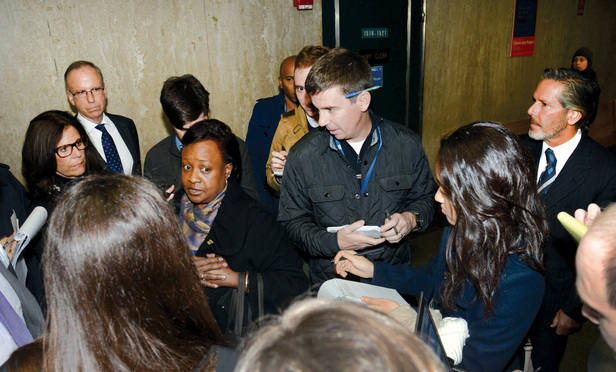Over nearly four months this summer, Skylar Schur sat in a large wood-paneled courtroom in lower Manhattan with 11 other jurors listening to lawyers, accountants, legal staff and bankers describe the financial dealings at Dewey & LeBoeuf during the years before it collapsed into bankruptcy in 2012. Manhattan prosecutors were trying to show that three former Dewey & LeBoeuf executives had overseen a scheme to manipulate the firm’s records to present a more positive financial picture to banks and investors. Despite the mountain of evidence, to Schur the case seemed fairly straightforward. She didn’t think that the jury would have trouble reaching agreement on at least some charges.
“I really thought people were going to be one way or another,” says Schur, a high school English teacher. “They were not.”






